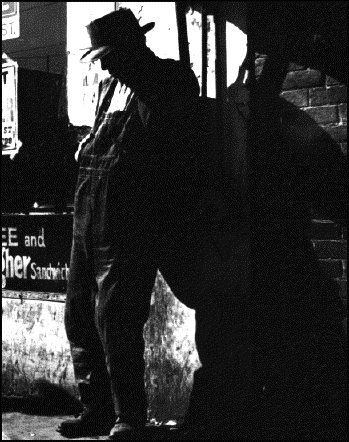Homelessness
Philosophical
Perspectives
G. John M.
Abbarno, Editor
(Rodopi)

Save a couple of the Navy buildings for a community center, I said. The rest of the land would be divided into plots twenty feet by twenty feet, which, if done right, could shelter some 1500 families. Lots would be awarded by lottery solely to those who could prove that they were below the poverty level, the very poorest getting the highest priorities.
The city would provide the infrastructure --- water, electricity, and sewer. They would also plant trees, grass and shrubs, and make the walkways. The new citizens of FreeTown (as we would name it) would be in charge of building their own homes on their own plots of land. All zoning requirements would be lifted so that the denizens could design and construct houses to their liking without the usual harassment from the city building and planning authorities. The whole area would be set up in such a way as to permit no cars to enter: it would be a village purely for pedestrians, wheelchairs, skateboards, or bicycles.
The City would provide regular transportation services and, in the early days of construction, vans would transport residents to the city dump, recycling centers and thrift stores so that they could find whatever materials necessary to build their houses.
The citizens of FreeTown would elect their own mayor, their own town council, and serve as volunteers on their own police and fire departments. Individuals would be encouraged to set up small businesses in their homes. The Town Council would set the rules whereby the village functioned. Lots would not be sold, but when a home was vacated, it would be made available --- again by lottery --- to those who qualified.
Since the homeless don't vote and don't contribute to the campaign funds of the San Diego mayor or council members, there didn't seem to be much enthusiasm for the plan. Airport expansion or tourist malls turned out to be more to the city's liking, and the editor of the OpEd page at the San Diego Union returned the article I sent in outlining the details of my idea. He called me and mumbled something about it being "off the mark" or "out of hand" or "beyond the pale" --- I can't remember exactly which.
The thesis was, obviously, that many homeless live in that parlous state not because they want to but because they don't have the finances to buy a plot of land, and they certainly could never meet the construction requirements and upkeep that are required under current zoning and planning laws. This all-too obvious economic truth barely makes it into the pages of The Ethics of Homelessness. There are dark photographs of the homeless by Janice Agati-Abbsarno, anonymous men and women, smiling at the camera, with a background of seedy second-hand stores, toting garbage bags filled with old clothes. There is a poem by Dennis Rohatyn, "Poetic Sounds of Homeless Verse,"
or saw the solar system
evicted from a black hole
nobody gave their address
like the young Daedalus
or left out the zip code
nobody froze to death
on a park bench.
the return home of the place from which the individual sets out wandering coincides with the lack or a fixed abode, so that "home" and "homelessness" are seen as one and the same thing.
In addition, there is much hand-wringing. Anita Superson, in "The Homeless and the Right to 'Public Dwelling'" says that running the homeless out of libraries, off the streets, and out of public parks is wrong --- they are citizens too, and they deserve to use them as they wish. Uma Narayan argues that the Homeless deserve "Equal Protection" under the Constitution, and agrees that includes a "right to public dwelling," again in the libraries and parks and on the streets.
In the whole book, only Natalie Dandekar comes close to lighting on the economic truth that is at the very heart of homelessness. She does it, interestingly enough, by comparing American housing with that of Bombay. There, old apartments have built-in rent control that permit huge families to stay in living spaces with rents that were established in the early 1900s. Even strangers get to be family, because they are
forced by the building design to share lavatory facilities, they also share newspapers, telephones, and holiday feasts...The landlord can only get out of the government's regulation of rent if the building is condemned, so the residents pool their money to keep the entire building in good repair.
She quotes from Joel Blau's classic study, The Visible Poor,
The key here is the establishment of a social housing sector...where housing could not be resold at a profit. Residents would not only acquire rights to their housing; they would also actively participate in its management.
With sixteen contributors, The Ethics of Homelessness is bound to be all at sixes and sevens. There are chapters that include figures on drug, alcohol abuse and psychological problems of those who live on the streets. There are chapters on the most truly homeless --- orphans. There is even a section devoted to Hannah Arendt, who was forced to flee Germany in 1933 and France in 1940.
But we contend that it is irresponsible for an editor to ignore the central cause of homelessness in America. Namely, the cruel economic determinism of a wealthy society that keeps those who have nothing from having anything...outside of being run out of the library or the park with little more than a kick in the pants.